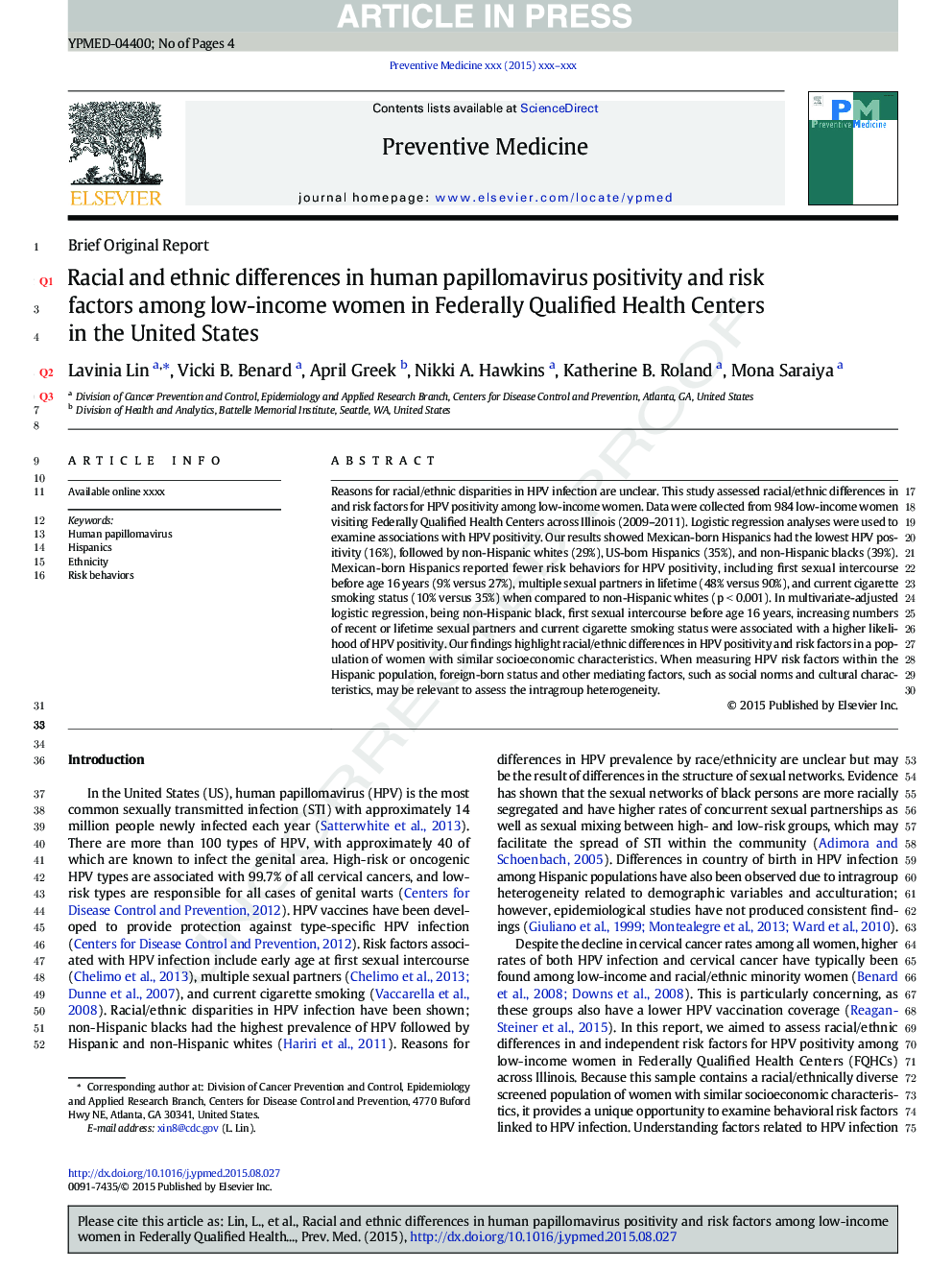| Article ID | Journal | Published Year | Pages | File Type |
|---|---|---|---|---|
| 6046532 | Preventive Medicine | 2015 | 4 Pages |
Abstract
Reasons for racial/ethnic disparities in HPV infection are unclear. This study assessed racial/ethnic differences in and risk factors for HPV positivity among low-income women. Data were collected from 984 low-income women visiting Federally Qualified Health Centers across Illinois (2009-2011). Pearson chi square and Logistic regression analyses were used to examine associations with HPV positivity. Our results showed Mexican-born Hispanics had the lowest HPV positivity (16%), followed by non-Hispanic whites (29%), US-born Hispanics (35%), and non-Hispanic blacks (39%). Mexican-born Hispanics reported fewer risk behaviors for HPV positivity, including first sexual intercourse before age 16 years (9% versus 27%), multiple sexual partners in lifetime (48% versus 90%), and current cigarette smoking status (10% versus 35%) when compared to non-Hispanic whites (p < 0.001). In multivariate-adjusted logistic regression, being non-Hispanic black, first sexual intercourse before age 16 years, increasing numbers of recent or lifetime sexual partners and current cigarette smoking status were associated with a higher likelihood of HPV positivity. Our findings highlight racial/ethnic differences in HPV positivity and risk factors in a population of women with similar socioeconomic characteristics. When measuring HPV risk factors within the Hispanic population, foreign-born status and other mediating factors, such as social norms and cultural characteristics, may be relevant to assess the intragroup heterogeneity.
Related Topics
Health Sciences
Medicine and Dentistry
Complementary and Alternative Medicine
Authors
Lavinia Lin, Vicki B. Benard, April Greek, Nikki A. Hawkins, Katherine B. Roland, Mona Saraiya,
